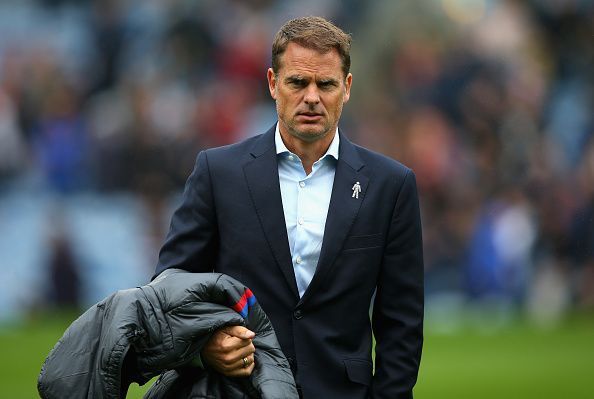
Crystal Palace and Parish too quick to push the button on De Boer
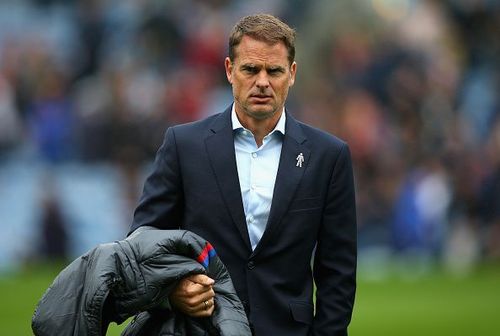
Less than three months ago, Crystal Palace announced the start of an ambitious new project to bring the philosophy of total football to Selhurst Park. Survival through stereotyped English robustness no longer appealed to chairman Steve Parish and his board, and it was time to bring some Dutch inspiration to a team. Parish wanted to entertain the fans with a style of football that would also appeal to the purists and potential investors alike.
Surprisingly, given their status in the modern game and their years in the English Premier League, the last non-British manager to take charge of the club was Italian Attilio Lombardo, and that was two decades ago.
Since then, an assortment of well-travelled ex-players and veteran managers have come and gone through the revolving door. And as with what has now become managerial tradition at Selhurst Park, former England boss Roy Hodgson is set to take charge in the immediate future.
Some managers have enjoyed more success than others, and while Parish appreciates the value of an attractive team, his business acumen dictates that the financial rewards of playing in the English Premier League remain top priority.
Knee-jerk reactions have brought previous tenures to premature ends as the fear of relegation looms through the enhanced media sensationalism attached to each defeat, and there is no better example of this than with the dismissal of Frank De Boer after just four games.
The promise that faded too quick
Upon his arrival at the end of June, De Boer was heralded as a man who would ensure that the club would enter a new and exciting era. The former defender had enjoyed six years of management at Ajax, a club steeped in Dutch footballing tradition, but he failed miserably in Italy when tasked with reviving the fortunes of Inter Milan.
De Boer lasted less than three months in the job at the San Siro, a situation subsequently mirrored at Crystal Palace, but the alarm bells failed to sound as he arrived at Selhurst Park.
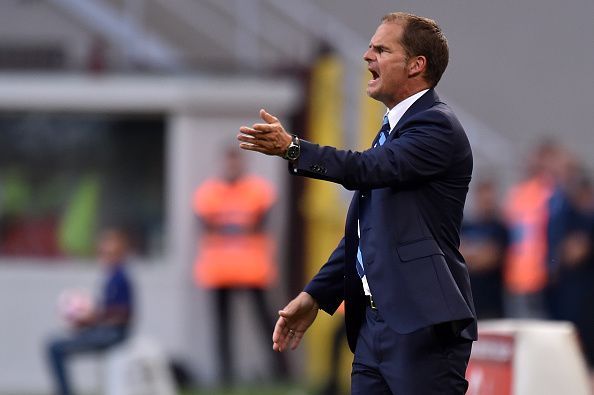
Of course, managerial sackings in Italy are a commonplace, and it is expected that there will be a managerial merry-go-round each and every summer amongst the clubs of Serie A. As an outsider, De Boer was never likely to be offered any significant time in Italy to restore the former Champions League winners to their previous status in the European game, and he paid the price for trying to implement a long-term philosophy at a club desperate for short-term success.
Arriving at Palace during the summer, De Boer did not have too much to work with, and predecessor Sam Allardyce had ensured survival the season before by using his experience to make sure the side played to their strengths, rather than to his vision.
Allardyce is a man who knows the English Premier League inside-out, and what it takes to compete in it when the odds are stacked against you. He was the right man at the right time when things looked bleak at the bottom.
Meanwhile, De Boer's Dutch football education and experience ensured that he could talk a good game, and given time and money, he may well have achieved the transition that would form the ultimate goal of his long-term project.
It was an idea that appealed to Parish, but with the team setting an unwelcome Premier League record by failing to even score in their opening four games, the blueprint for the future of the club under the guidance of De Boer was destroyed.
However, while 450 minutes of football is no time to judge a manager, there were significant signs of frustration in the mannerisms of De Boer to suggest things were not progressing as intended, even at this early stage. Cutting an increasingly despondent figure on the touchline, his side were creating chances, but the lack of belief and confidence in front of goal was never more apparent than against Burnley at the weekend.
And now the onus falls on Roy Hodgson
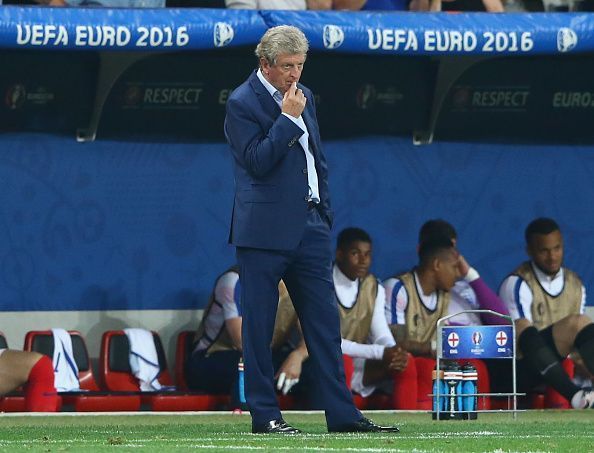
The 1-0 defeat signalled the end for De Boer, and it is now likely that his managerial career will need to take two steps backwards before he can start to make any further steps forward. His only redemption is likely to be back in the Netherlands, where his philosophy is appreciated as an accepted standard rather than a revolutionary approach.
Otherwise, his name will only take him to the footballing backwaters and to emerging clubs and national leagues more interested in overspending on a big name than on a viable managerial candidate.
As for Crystal Palace, Roy Hodgson, 70, will embrace the opportunity to have another crack at the English Premier League, and his experience of a managerial career spanning over 40 years will put him a good position for whatever is thrown at him.
He is no stranger to pressure, having recently had the honour of leading England to both the 2014 FIFA World Cup and UEFA EURO 2016, and he will appreciate the fact that this is likely to be his last job.
Reaction over response
However, the impending appointment of Roy Hodgson, like Allardyce, is another reactionary measure for Palace and Parish. Having shown the initial faith in appointing De Boer, the board had a responsibility to support and back their chosen man more than they have done. Likewise, De Boer was let down by his players as they simply failed to perform, regardless of whatever changes he was starting to implement.
Four games is no indication of what De Boer could have achieved, but if the club weren't willing to allow his philosophy and approach the necessary time needed, then they must also take the blame.
Blinded by a impressive playing career, De Boer was a perfect figure to headline a vision of an ideal image Parish wanted Crystal Palace to be in the long-term, but the calculated risk didn't include a transitional period.
Sadly, there are a number of lower-profile names showing their managerial credentials in the Championship who will not get opportunities like De Boer. The English Premier League is an international brand that sells across the world, and clubs must buy into that appeal in order to maximise the financial potential of their product.
Increasingly, top-flight survival and short-term success are all that matter, and as a result, intelligent football men like De Boer will never be granted the time to build a top-flight team in their vision.
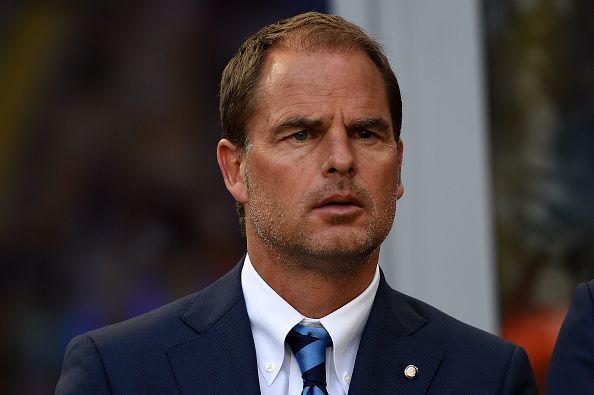
So, is Frank De Boer a good manager, or not? While it would be unfair to judge him on his brief time at both Inter Milan and Crystal Palace, his spell at Ajax suggests that he his. He will be remembered in Serie A and the English Premier League as a failure, but in reality, it is the lack of patience or belief by the clubs that employed him that resulted in two successive, embarrassing exits.
These are changing times in the modern game, and De Boer's latest sacking is an indication that things are not necessarily changing for the better. The idealism of building a team and the time that such a project takes is being lost to short-term success and financial reward.
Only the managerial stability is with the very richest of clubs, with their spending potential almost guaranteeing the manager time through results to implement a long-term philosophy effectively.